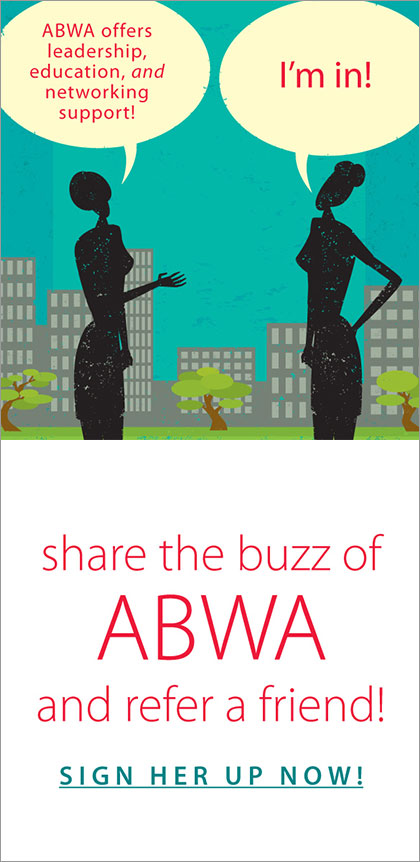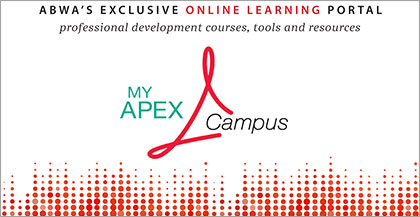
by American Business Women's Association | Apr 22, 2019 | Blog
By Lisa Rangel
The executive recruiter calls with a job that sounds as if it was written just for you. The more the recruiter describes the position, the more excited you get. Then she ends the call with, “Great! Send me your resume and I’ll submit it to the company.”
Duh!!!
That’s the moment you realize that you haven’t updated your resume…What do you do?
Here are six actions you can take to update your executive resume pronto:
- Ask the recruiter what are the top three achievements the prospective employer wants the next hire to do. Next be sure you have measurable achievements listed that demonstrate how you either have done these accomplishments already or show how you are positioned to do these wins as next steps in your career. Speak to what the employer needs and what the recruiter says is important in the form of achievement-based bullets in your resume. Here are a few tips to do that include focusing on CAR or STAR formats. CAR stands for Context, Action, Result. The objective is to introduce a problem that you solved by providing the story behind it. STAR (Situation, Task, Action, Result) is similar in so far as you are also telling a story and highlighting how you are the hero in a situation: https://chameleonresumes.com/how-write-achievement-based-executive-resume-bullet/
- Make sure your contact information is updated. Current phone number (mobile) and email. You won’t need to include your physical address to send your resume to a third party recruiter in most cases. Be sure to include your LinkedIn profile vanity URL. Here are instructions on how to create your Vanity LinkedIn URL: https://www.linkedin.com/help/linkedin/answer/87/customizing-your-public-profile-url?lang=en
- Ensure the target position you just discussed with the recruiter is reflected in the title of your resume. Don’t start this summary section with the word “summary” or “objective.” Use the title as the title. This will visually reinforce to the reader that you want to do what they need.
- Freshen up the font. Gravitate towards a font more modern while still conveying an executive feel, such as Calibri or Arial Narrow.
- Update the visual element to your resume. Include subtle touches of color in the form of a separator line between sections. Refrain from using graphs and tables. Keep the layout simple, yet elegant, when doing your resume yourself.
- Employ the use of white space in your resume. Break up blocks of information and use short sentences with numeric- and results-driven content. Know that readers digest reading your resume in 6 second increments, so you want to write digestible morsels to keep them reading and motivated to call.
Ideally, you want to be ready with a resume BEFORE that recruiter call comes. But let’s face it, most of us will do it under pressure after the call comes. So these steps above will have you updating your resume and sending it over to the recruiter in no time! Also, remember companies that specialize in executive resume writing and consulting can be a big help when it comes to updating a resume quickly. You never have to do it alone.
ABOUT LISA RANGEL
Lisa Rangel, Founder and Managing Director of www.ChameleonResumes.com, LLC (a Forbes Top 100 Career Website), is a Certified Professional Resume Writer, Job Landing Consultant & 13-year Recruiter. She’s been featured on CNN Business, Fast Company, Business Insider, Forbes, LinkedIn, CNBC, Time Money, BBC, Newsweek, Crain’s New York, Chicago Tribune, eFinancialCareers, CIO Magazine, Monster, US News & World Report, Good Morning America, Fox Business News, New York Post, and other reputable media outlets.

by American Business Women's Association | Mar 24, 2019 | Blog
Written by Executive Leadership Coach, Denise Louise Jeffrey
Whether pushing for promotion, bargaining for extra budget or trying to convince a client to get on board, negotiation is a necessary part of business life. Most of us aren’t born with this skill, but it’s well worth taking the time to conquer for the benefits that it can bring – from forging better business relationships to reaping great rewards… whatever they may look like for you. With insight from Executive and Leadership Coach Denise Louise Jeffrey, here’s how to influence your way to great negotiations and seal the deal:
BE PREPARED…
One of the most important things to do when negotiating, is to put in the groundwork before anything begins. A common combination, and a vain one at that, is to be overconfident but under-prepared. Always take time to put the research in, and make sure you know what you’re getting yourself into. If you know who you’re meeting, carry out some background research, perhaps familiarizing yourself with their role and career trajectory. Also educate yourself on the project at hand, so that you’re well positioned to address any questions that may arise, and provide answers backed up by cold, hard facts.
BE ATTENTIVE…
Being attentive takes on many types of meaning in negotiations. No matter who you’re up against, always take the time to listen and show that you’re taking on board what they say. This is a two-way street, and there needs to be a mutual respect and understanding for what one another wants from the meeting. But being attentive also means being observant of their behavior, and as Denise suggests, you should use this to negotiate “with an outlook of achieving different outcomes that could be acceptable for all, depending on the style of bargaining your counterpart pursues.” Being able to pay attention to and, recognize their tactics, is key. This leads us onto the final step
BE ADAPTABLE…
As Denise tells us, negotiation isn’t a one-solution situation, and what works for one person may not work for the next. Being able to adapt based on your negotiator’s behavior is a key part in increasing your likelihood of success in the transaction. According to Denise, you can do this through noting their negotiation traits, which have been broken down into four archetypal types: The ‘My Way or the Highway’ type, the ‘Sweet Talker’ type, and the ‘Devil’s in the Details’ type and the ‘Let’s Not Rock the Boat’ type. The key is to then meet them on their level, unless – and this is one exception to the rule – they are being inappropriate or aggressive, in which case, call them out for their unprofessionalism and part ways. Denise’s recommended negotiation approaches are tailored to each category.
Ultimately, the most valuable skill a negotiator can possess is “being able to adapt and negotiate in all styles – not just the one you are most comfortable with.” Being prepared, attentive, altering your behavior based on theirs, and adapting accordingly on the day, is what will give you the highest chance of the best possible outcome.

by American Business Women's Association | Feb 27, 2019 | Blog, Uncategorized
By Ted Janusz
Can you relate to this? John Wannamaker, the Philadelphia department store magnate, said “Half the money I spend on advertising is wasted; the trouble is, I don’t know which half.” But there is one form of marketing, that ALWAYS works … what is it?
WORD OF MOUTH!
Of course, now with the internet and social media, you could call it WORLD of mouth marketing. People are six times more likely to rely on the word of other people when making a buying decision rather than advertising.
In fact, 80% of consumer buying decisions are based on personal recommendations. Here’s why it works …
The average American adult knows 400 people … people you work with, went to school with, or people you know socially. If you assume each of those 400 people know 400 others (of course, there will be some overlap – but let’s keep it simple), you now have an immediate network of 140,000 people.
And if you assume those 140,000 people know 400 others, you are up to one-third of the US population. And what will people spread about your business, good news or bad? Right! Bad news!
Your average satisfied customer will tell 5 to 8 others. But your average upset customer (if you have any) will 10 to 16. In fact, one in five will tell 20 people how upset you have made them.
In their book Creating Customer Evangelists, authors Ben McConnell and Jackie Huba say, “Competition for entertainment dollars – where Dallas Mavericks owner Mark Cuban says he competes – is fierce. To succeed, he must continually focus on increasing the average lifetime value of a Mavs season ticket holder. In 2002, that figure was $300,000, according to Cuban. “The Chicago Cubs, you’ve got to wait in line to get your season tickets,” he says. “That’s the goal … then I don’t have to spend lots of money on salespeople and all kinds of support efforts – I’ve just got to keep [customers] happy. It’s a lot easier to keep ‘em happy than to go out and get new ones to replace ‘em.”
Now the lifetime value of one of your customers may not be $300,000 like it is for the Dallas Mavericks. But once you determine what that value is for you, you’ll realize how important to keep those customers happy – since they, bar none, are your best source of marketing.
Ted Janusz, MBA, CSP is a Certified Speaking Professional who has delighted audiences for more than 5,000 hours, in 49 of the 50 United States, in Canada from Halifax to Vancouver, in Australia, Mexico, and Puerto Rico. Learn more at www.januspresentations.com.








